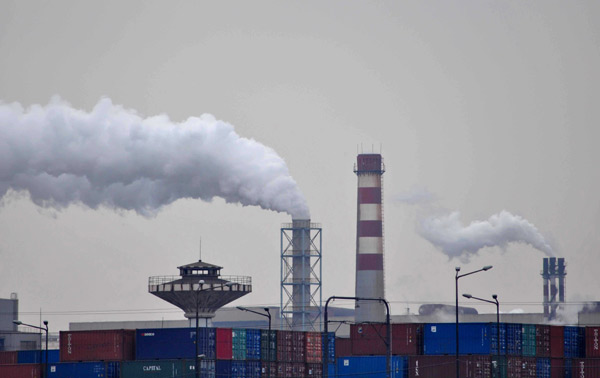Burning Issue in GDP Targets
China Daily, October 29, 2013 Adjust font size:
China might be on a steady course toward realizing its gross domestic product growth target set for the 12th Five-Year Plan (2011-15), but when it comes to saving energy, another factor in economic growth, the government has cause for concern.
Peng Sen, deputy director of the Financial and Economic Affairs Committee under the National People's Congress, the country's legislature, disclosed at a recent forum that his committee is doing a midterm evaluation of the plan. Many problems were spotted in the areas of energy consumption, environment and emission reduction. In general, the result was not considered "satisfactory".
Another official from the National Development and Reform Commission, the nation's top economic planner and top energy policymaker, was quoted by National Business Daily as saying that the country's per GDP energy consumption has dropped by only 5.5 percent from its 2010 level.
China has made a commitment to the world to reduce energy consumption per unit of GDP by 16 percent by the end of 2015. This means that China in the first two years accomplished only 32.7 percent of the target, leaving a heavy task to accomplish the target in the next three years.
To meet the challenge, the commission has issued a special document to ensure a 3.84 percent annual cut in energy consumption per GDP unit and planned to ramp up financial support to facilitate upgrading and renewable energy development.
But the question is, has the financial subsidy really been effective in improving energy efficiency? After all, the commission had already poured billions of yuan into the cause. In 2012 alone, the central government granted 170 billion yuan (US$27.4 billion) to local governments' endeavors, according to National Business Daily. But the result has not been satisfactory.
Cynics are quick to point out that there are many problems with the subsidy program. A considerable number of factories and power stations did not operate any energy-saving or emission-filtering facilities after buying them, just so they could gain the subsidy. But experts said even if the subsidy had been faithfully implemented, it may still be inefficient.
|
|
|
Smoke billows from a factory in Shanghai. China has made a commitment to the world to reduce energy consumption per unit of GDP by 16 percent by the end of 2015. [China Daily] |



